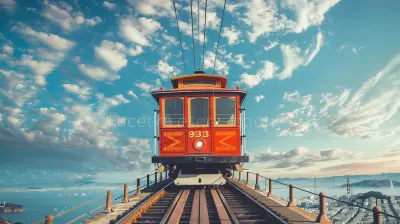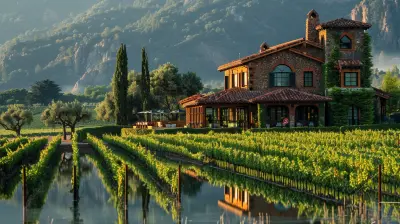How Cultural Festivals Influence Local Economies
26 July 2025
Let's be real for a second—who doesn’t love a good festival? From face paint and folk dances to local eats that make your taste buds do the cha-cha, cultural festivals are like a sensory explosion. But beyond the glitter, laughter, and endless Instagram stories, cultural festivals pack some serious economic punch.
Ever wondered how a weekend of drum circles, food trucks, and traditional garb can boost a local town's economy? Well, buckle up, buttercup, because we’re diving head-first into the wonderfully quirky world of cultural festivals and their economic mojo.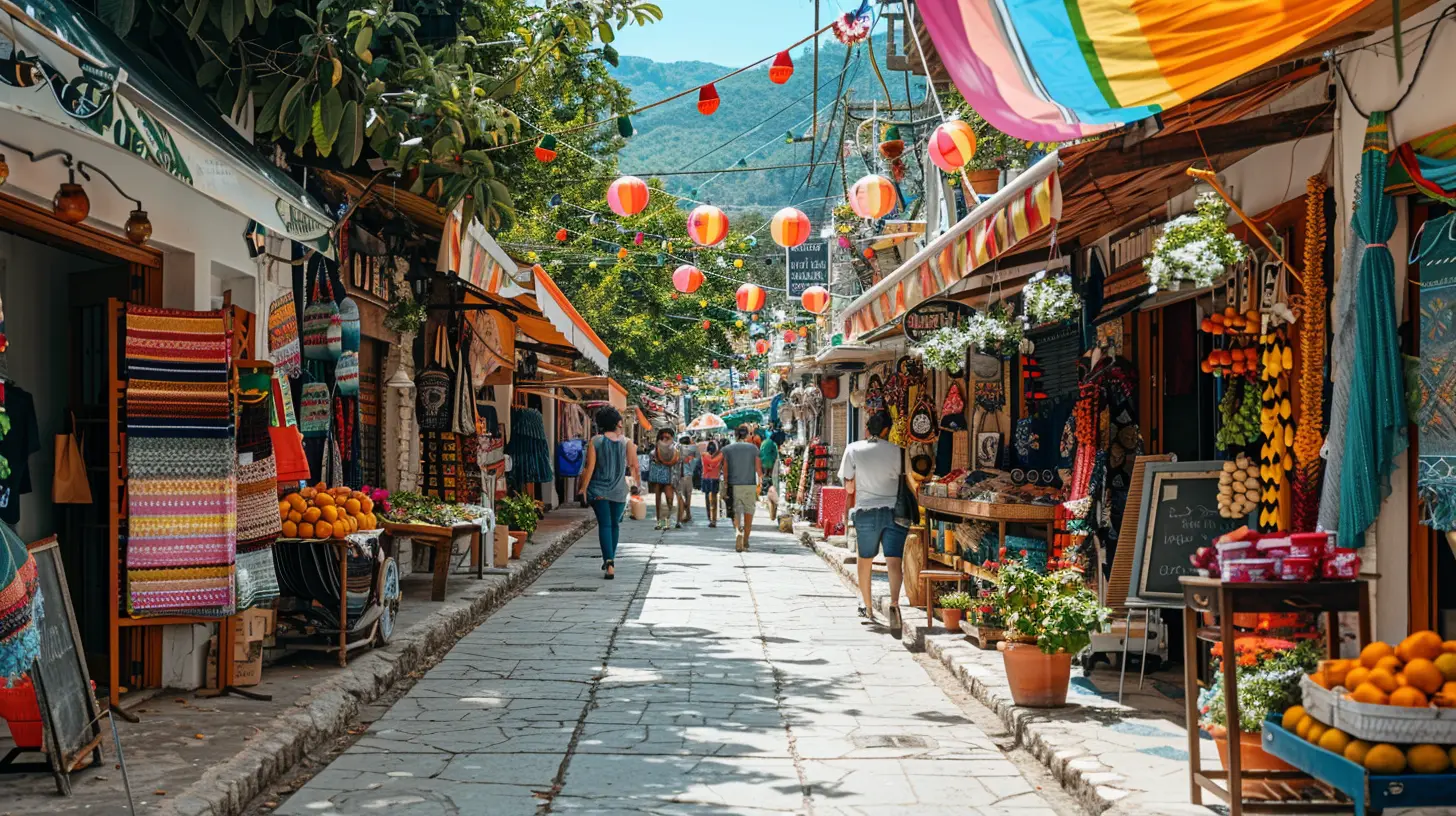
🎉 The Festival Vibe: More Than Just Fun and Feathers
At first glance, cultural festivals may look like community block parties turned up to eleven. But look a little closer, and these events are economic engines humming beneath garlands of colorful decor. They’re not just about showcasing heritage; they drive tourism, support small businesses, and create ripple effects that last long after the last tent is folded.Think of a cultural festival as a pebble thrown into a local pond—the splash is fun, but the ripples? That’s where things get interesting... and profitable.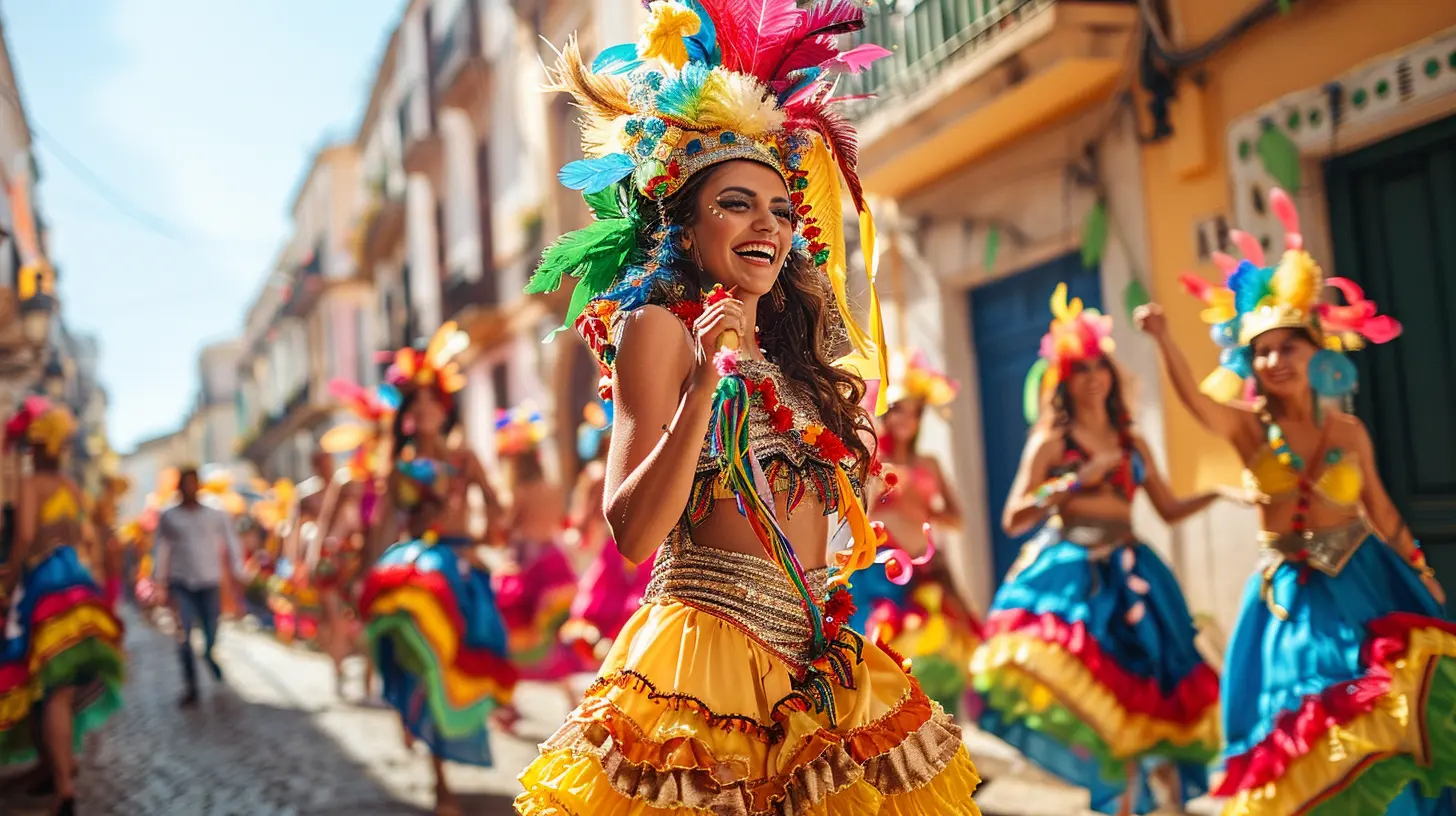
🏨 Tourism Takes the Front Seat
Yes, Festivals Are Travel Magnets
Let’s face it, folks don’t just travel for tall mountains or sunny beaches anymore. They travel for experiences—and cultural festivals are tailor-made for “story-worthy” moments.Take Diwali in India, Mardi Gras in New Orleans, or the Tomato Festival in Spain. These aren’t just events—these are bucket list bangers. Tourists plan months in advance, booking flights, hotels, and even renting local attire. All that cash flows straight into the local pot.
Local Hospitality? Jackpot!
Hotels, motels, Airbnbs, and even that rustic campground behind your uncle’s barn benefit from a major uptick in reservations during festivals. Room rates often surge (thank you, supply and demand!), and many accommodations even throw in themed packages to capitalize on the buzz.And it doesn’t stop there. Tour guides, tuk-tuk drivers, taxi apps… all get in on the action. Heck, even that grumpy guy renting out scooters sees a line.
🍔 The Food Boom: Local Eats, Global Treats
Here’s a secret: festival food is the unsung hero of the economic story. Food stalls during festivals can sell more in a weekend than they might in several months of regular business. And we’re not talking just burgers and fries—think regional specialties that make grannies proud and tourists curious.Farmers, Bakers, and Street-Meat Makers
Local farmers often provide the raw ingredients, while bakers and chefs whip them up into mouthwatering masterpieces. This creates a short, efficient supply chain. Money goes from your wallet to the food vendor to the local farmer—and that, my friends, is circular economy magic!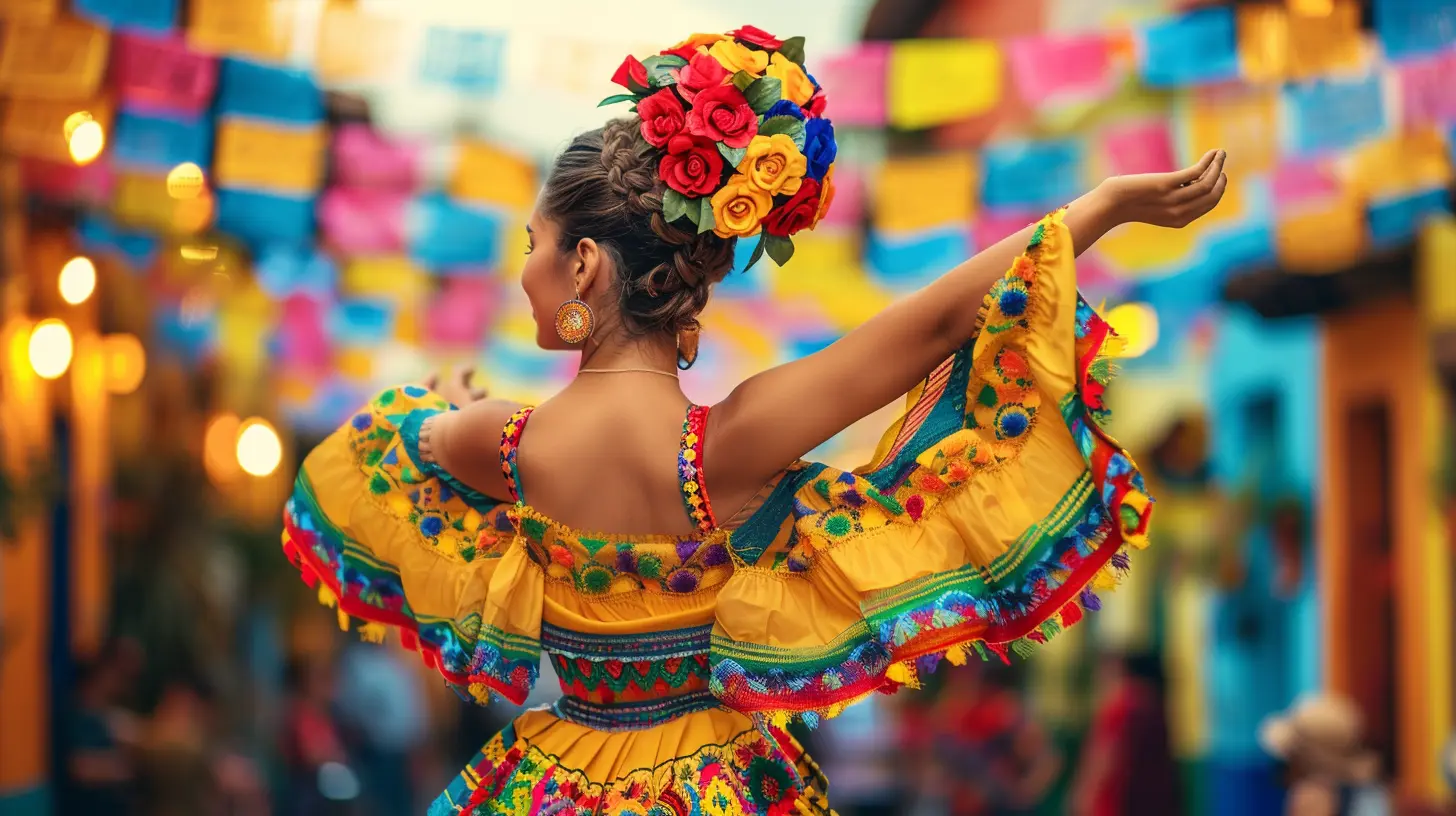
🛍️ Merchants and Makers: Cha-Ching Central
Souvenirs That Actually Mean Something
You bet your bottom dollar that tourists aren’t leaving without a tote bag, a handwoven bracelet, or a magnet with indecipherable local script. Cultural festivals offer artisans a golden stage—a chance to go from weekend hobbyists to full-time entrepreneurs.And these handmade trinkets? They're storytelling tools. Each one carries the cultural DNA of the region. It's not just buying a product; it's buying a piece of the culture.
Pop-Up Markets = Economic Powerhouses
During festivals, towns often host pop-up bazaars. Imagine Etsy coming alive in real-time. These temporary markets are seriously underestimated GDP contributors. Local vendors, some of whom don’t even own stores, rake in sales while building brand recognition.💼 Job Opportunities: Work That Doesn’t Feel Like Work
Think about how many people it actually takes to pull off a festival — event planners, lighting crews, stage managers, security, food staff, sanitation workers, ticket sellers, musicians, dancers, and hey, even someone has to dress up as the oversized festival mascot.These roles, whether temp or permanent, give the local job market a nice shot of caffeine. High schoolers land gigs ushering, college students work booths, and professional performers can finally show off those five years of contemporary dance training.
Even better? These jobs often turn into repeat work as festivals become annual affairs or spin off into smaller events throughout the year.
🏗️ Infrastructure Upgrades: Thank Festivals for That Smooth Road
Ever wonder why the streets suddenly get repaved before a big event? Or why there's a shiny new public restroom installed downtown? Yep, thank your local cultural fest. Festivals often nudge municipalities to invest in public infrastructure—stuff that benefits the community long after the confetti has settled.Sidewalks get widened. Parks get beautified. Lighting improves. These changes aren’t just for the weekend crowd—they’re long-term upgrades that improve overall quality of life.
🤝 Community Engagement: The Social Capital Connection
Volunteers With Hearts of Gold (and Economic Impact)
Cultural festivals often run on the love and labor of volunteers, who donate their time to keep things running smoothly. While unpaid, their value is enormous. Studies show that volunteer-driven events save thousands in operational costs, allowing resources to be redirected toward local business partnerships, marketing, and talent.Local Pride = Sustainable Growth
Festivals have this crazy ability to make locals fall head-over-heels (again) for their hometown. That pride? It translates directly into economic resilience. Residents become more supportive of local brands, more inclined to support development projects, and more likely to stay rooted in the community.📸 The Social Media Domino Effect
You know what's worth gold these days? A viral moment. A well-placed selfie at your cultural festival doesn’t just rack up likes—it can kick off a domino effect of visibility. That exposure draws future visitors, sponsors, and even investors.Hashtag campaigns, influencer shoutouts, and TikTok dance trends centered around festivals can reach international audiences. That’s free marketing with global reach. Try getting that kind of PR with a billboard.
🌍 Cultural Diplomacy and International Ties
Some festivals attract not just tourists but cultural delegations from other countries. Think: film festivals, Diaspora celebrations, or international performance days. These events offer opportunities for cities to build sister-city relationships, business partnerships, and educational exchanges.All of which means… more people, more money, more collaborations. Everyone wins.
🔁 The Long-Term Economic Loop
Here's the kicker: the economic boost from a cultural fest isn't just a one-off fireworks show—it’s more like lighting a candle that stays burning.Many tourists fall so in love with a festival that they return every year, or recommend it to friends. Entrepreneurs who tasted success during festivals often open permanent shops. Towns that host successful events gain reputations as cultural hotspots—opening doors to other opportunities like movie shoots, conferences, and conventions.
The cycle repeats itself. And each time, it grows a little bigger.
🎯 Challenges? Of Course. But They’re Worth It.
Let’s not pretend everything’s all sunshine and daal. There are some challenges—the increased foot traffic can strain public amenities, environmental concerns like littering rise, and sometimes, weirdly, gentrification can sneak in post-festival. But with smart planning, community involvement, and a touch of foresight, these issues can be managed.And let’s be honest—every investment comes with a list of “what-ifs.” But when the rewards can rekindle a town’s cultural identity, create jobs, draw tourism, and spark pride, the pros outweigh the cons. Big time.
🛎️ Final Thoughts: Festivals Aren’t Just for Fun
Next time you’re dancing in the streets, street food in one hand and a souvenir in the other, take a moment to appreciate what’s happening behind the scenes. That cultural festival isn’t just entertaining you—it’s fuelling jobs, feeding families, and revitalizing entire economies.So keep supporting your local festivals. Show up, spend your money, take cute pics, and dance like nobody’s watching. Because in the grand scheme of things, you’re doing a lot more than just having fun—you’re helping a town thrive.
all images in this post were generated using AI tools
Category:
Cultural FestivalsAuthor:

Tracie McAdams
Discussion
rate this article
2 comments
Runevale Scott
Cultural festivals play a crucial role in boosting local economies by attracting tourists, creating jobs, and supporting local businesses. They foster community pride and preserve traditions while generating significant revenue through tourism spending. Investing in these events can lead to sustainable economic growth and a vibrant cultural landscape for all.
October 30, 2025 at 3:48 PM

Tracie McAdams
Absolutely! Cultural festivals not only enhance community pride and preserve heritage but also drive local economic growth by attracting tourists and creating jobs. Investing in these events yields significant benefits for the economy and enriches the cultural landscape.
Robert McKibben
Great insights! Cultural festivals truly serve as vibrant catalysts for local economies, fostering community spirit and driving tourism. They not only boost local businesses but also promote cultural exchange and understanding. It's inspiring to see how such events can create lasting positive impacts on both residents and visitors alike!
July 30, 2025 at 3:09 PM

Tracie McAdams
Thank you for your thoughtful comment! I completely agree—the multifaceted benefits of cultural festivals truly enrich both local economies and community bonds.

